
The annual Women’s Prize for Fiction was announced at midnight last night, on International Women’s Day.
No longer the Baileys Prize, this year there are three sponsors, including Bailey’s and the prize will simply be referred to as the Women’s Prize for fiction. The wider sponsorship aims to ‘build on the successes of the past and will also see the commercial possibilities to connect with a global audience’ while championing women’s creativity, celebrating excellence and keeping women’s voices centre stage.
“What is striking about the list, apart from the wealth of talent, is that women writers refuse to be pigeon-holed. We have searing social realism, adventure, comedy, poetic truths, ingenious plots and unforgettable characters. Women of the world are a literary force to be reckoned with.” Sarah Sands, Chair of Judges.
This year, I have already read three from the list, I’ll link to my reviews at the end. The long listed books follow, with extracts via the Women’s Prize:
H(A)PPY by Nicola Barker – a post – post apocalyptic Alice in Wonderland, of “daring narrative ingenuity”
Imagine a perfect world where everything is known, where everything is open, where there can be no doubt, no hatred, no poverty, no greed. Imagine a System which both nurtures and protects. A Community which nourishes and sustains. An infinite world. A world without sickness, without death. A world without God. A world without fear. Could you…might you be happy there?
The Idiot by Elif Batuman – portrait of the artist as a young woman, inventing herself, awakening
Selin, a tall, highly strung Turkish-American from New Jersey turns up at Harvard and finds herself dangerously overwhelmed by the challenges and possibilities of adulthood. She studies linguistics and literature, teaches ESL and spends a lot of time thinking about what language – and languages – can do. Throughout her journeys, Selin ponders profound questions about how culture and language shape who we are, how difficult it is to be a writer, and how baffling love is.
Three Things About Elsie by Joanna Cannon – a poignant perspective of community life & the vulnerability of age
84-year-old Florence has fallen in her flat at Cherry Tree Home for the Elderly. As she waits to be rescued, Florence wonders if a terrible secret from her past is about to come to light; and, if the charming new resident is who he claims to be, why does he look exactly like a man who died sixty years ago whom she fears? Florence, Elsie and Jack set to and unravel the mystery, getting them out of the home and out of their minds, that linger in the past.
Miss Burma by Charmaine Craig – a novel of love and war, colonialism and ethnicity, and the ties of blood
Based of the lives of the author’s mother and grandparents, Miss Burma tells the story of modern-day Burma through the eyes of one family struggling to find love, justice, and meaning during a time of war and political repression.
Manhattan Beach by Jennifer Egan – historical novel with a hint of noir thriller, set in the Depression
Anna Kerrigan, nearly twelve years old, accompanies her father to visit Dexter Styles, a man who, she gleans, is crucial to the survival of her father and her family. She is mesmerised by the sea beyond the house and by some charged mystery between the two men. Years later, her father has disappeared, the country is at war. Anna works at the Brooklyn Naval Yard, where women are allowed to hold jobs that once belonged to men, now soldiers abroad. She becomes the first female diver, the most dangerous and exclusive of occupations, repairing ships that will help America win the war. One evening at a nightclub, she meets Dexter Styles again and begins to unravel the complexity of her father’s life, and the reasons he might have vanished.
The Mermaid and Mrs Hancock by Imogen Hermes Gowar – spell-binding story of curiosity and obsession
One September evening in 1785, the merchant Jonah Hancock hears urgent knocking on his front door. One of his captains is waiting eagerly on the step. He has sold Jonah’s ship for what appears to be a mermaid.
As gossip spreads through the docks, coffee shops, parlours and brothels, everyone wants to see Mr Hancock’s marvel. Its arrival spins him out of his ordinary existence and through the doors of high society. At an opulent party, he makes the acquaintance of Angelica Neal, the most desirable woman he has ever laid eyes on….and a courtesan of great accomplishment. This meeting will steer their lives on a dangerous new course.
What will be the cost of their ambitions? And will they be able to escape the destructive power mermaids are said to possess?
Sight by Jessie Greengrass – existential reflections of a pregnant woman
In Sight, a woman recounts her progress to motherhood, while remembering the death of her own mother, and the childhood summers she spent with her psychoanalyst grandmother.
Woven among these personal recollections are significant events in medical history: Wilhelm Rontgen’s discovery of the X-ray and his production of an image of his wife’s hand; Sigmund Freud’s development of psychoanalysis and the work that he did with his daughter, Anna; John Hunter’s attempts to set surgery on a scientific footing and his work, as a collaborator with his brother William and the artist Jan van Rymsdyk, on the anatomy of pregnant bodies.
What emerges is the realisation that while the search for understanding might not lead us to an absolute truth, it is an end in itself.
Eleanor Oliphant is Completely Fine by Gail Honeyman – uplifting story of an out-of-the-ordinary heroine
Eleanor Oliphant leads a simple life. She wears the same clothes to work every day, eats the same meal deal for lunch every day and buys the same two bottles of vodka to drink every weekend. Eleanor Oliphant is happy. Nothing is missing from her carefully timetabled life. Except, sometimes, everything. One simple act of kindness is about to shatter the walls Eleanor has built around herself. Now she must learn to navigate the world that everyone else seems to take for granted – while searching for the courage to face the dark corners she’s avoided all her life. Change can be good. Change can be bad. But surely anything is better than…fine?
When I Hit You: Or, A Portrait of the Writer as a Young Wife by Meena Kandasamy – fierce and courageous dissection of what love meant, means and will come to mean when trust is undermined by violence
Seduced by politics, poetry and an enduring dream of building a better world together, a young woman falls in love with a university professor. Marrying him and moving to a rain-washed coastal town, she swiftly learns that what for her is a bond of love is for him a contract of ownership. As he sets about bullying her into his ideal of an obedient wife, and devouring her ambition of being a writer in the process, she begins to push back – a resistance he resolves to break with violence and rape.
Elmet by Fiona Mozley – a novel about family, and a beautiful meditation on landscape
Daniel is heading north. He is looking for someone. The simplicity of his early life with Daddy and Cathy has turned sour and fearful. They lived apart in the house that Daddy built for them with his bare hands. They foraged and hunted. When they were younger, Daniel and Cathy had gone to school. But they were not like the other children then, and they were even less like them now. Sometimes Daddy disappeared, and would return with a rage in his eyes. But when he was at home he was at peace. He told them that the little copse in Elmet was theirs alone. But that wasn’t true. Local men, greedy and watchful, began to circle like vultures. All the while, the terrible violence in Daddy grew.
The Ministry of Utmost Happiness by Arundhati Roy – an aching love story and a decisive remonstration
Over a journey of many years, the story spools outwards from the cramped neighbourhoods of Old Delhi to the burgeoning new metropolis and beyond, to the Valley of Kashmir and the forests of Central India, where war is peace and peace is war, and where, from time to time, ‘normalcy’ is declared.
Anjum, who used to be Aftab, unrolls a threadbare carpet in a city graveyard that she calls home. A baby appears quite suddenly on a pavement, a little after midnight, in a crib of litter. The enigmatic S. Tilottama is as much of a presence as she is an absence in the lives of the three men who loved her.
It is told in a whisper, in a shout, through tears and sometimes with a laugh. Its heroes are people who have been broken by the world they live in and then rescued, mended by love-and by hope. They are as steely as they are fragile, and they never surrender.
See What I Have Done by Sarah Schmidt – a murder, an intimate story of a volatile household, a family devoid of love
Just after 11am on 4th August 1892, the bodies of Andrew and Abby Borden are discovered. He’s found on the sitting room sofa, she upstairs on the bedroom floor, both murdered with an axe.
It is younger daughter Lizzie who is first on the scene, so it is Lizzie who the police first question, but there are others in the household with stories to tell: older sister Emma, Irish maid Bridget, the girls’ Uncle John, and a boy who knows more than anyone realises.
A Boy in Winter by Rachel Seiffert – portrait of the Nazis’ arrival in Ukraine as they move towards the final solution
Early on a grey November morning in 1941, only weeks after the German invasion, a small Ukrainian town is overrun by the SS. Penned in with his fellow Jews, under threat of transportation, Ephraim anxiously awaits word of his two sons, missing since daybreak. Come in search of her lover to fetch him home again, away from the invaders, Yasia confronts new and harsh truths about those closest to her. Here to avoid a war he considers criminal, German engineer Otto Pohl is faced with an even greater crime unfolding behind the lines, and no one but himself to turn to. And in the midst of it all is Yankel, a boy who must throw his chances of surviving to strangers.
Home Fire by Kamila Shamsie – a contemporary retelling of the classic Antigone, the idealism of youth in dangerous times
Isma is free. After years spent raising her twin siblings in the wake of their mother’s death, she resumes a dream long deferred – studying in America. But she can’t stop worrying about Aneeka, her beautiful, headstrong sister back in London, or their brother, Parvaiz, who’s disappeared in pursuit of his own dream – to prove himself to the dark legacy of the jihadist father he never knew.
Then Eamonn enters the sisters’ lives. Handsome and privileged, he inhabits a London worlds away from theirs. As the son of a powerful British Muslim politician, Eamonn has his own birthright to live up to – or defy. The fates of these two families are inextricably, devastatingly entwined in this searing novel that asks: what sacrifices will we make in the name of love?
The Trick to Time by Kit de Waal – a moving story of love and loss, overcoming grief
Mona is a young Irish girl in the big city, with the thrill of a new job and a room of her own in a busy boarding house. A dollmaker, she lovingly crafts handmade dolls that she sells to collectors around the world, and provides bereavement counselling for mothers who have suffered stillbirths, miscarriages and cot deaths. On her first night out in 1970s Birmingham, she meets William, a charming Irish boy with an easy smile and an open face. They embark upon a passionate affair, a whirlwind marriage – before a sudden tragedy tears them apart.
Decades later, Mona pieces together the memories of the years that separate them. But can she ever learn to love again?
Sing, Unburied, Sing by Jesmyn Ward – a portrait of a family, of hope, struggle and ugly truths
Jojo is thirteen years old and trying to understand what it means to be a man. His mother, Leonie, is in constant conflict with herself and those around her. She is black and her children’s father is white. Embattled in ways that reflect the brutal reality of her circumstances, she wants to be a better mother but can’t put her children above her own needs, especially her drug use.
When the children’s father is released from prison, Leonie packs her kids and friend into her car and drives north to the heart of Mississippi and Parchman Farm, the State Penitentiary. At Parchman, there is another boy, the ghost of a dead inmate who carries all of the ugly history of the South with him in his wandering. He too has something to teach Jojo about fathers and sons, about legacies, about violence, about love.
***
It’s an interesting list, with lots of familiar names to me, and many titles that I’ve seen reviewed by Eric at Lonesome Reader, who keeps up with reading and reviewing most of the new fiction coming out in the UK. I’m surprised not to see Ali Smith’s Winter there, nor Elizabeth Strout and disappointed not to see Jennifer Nansubuga Makumbi’s Kintu, which I’m going to write more about soon.
I’m in the middle of reading the excellent and humorous Three Things About Elsie by Joanna Cannon, the writing and her poignant depictions of characters are excellent. There are many on here I want to read, Sight was picked by Eric as his book likely to win the Man Booker this year and he’s pretty accurate with predictions, so I’d better read that, I’ve seen much written about When I Hit You, it’s one of those books I know is a mini masterpiece, but such a heartbreaking, soul-destroying subject to read about – still, I may have to read it now.
So which from the list are you interested in reading? Or disappointed not to see there?
Further Reading:
My Review of Home Fire by Kamila Shamsie
My Review of Sing, Unburied, Sing by Jesymn Ward
My review of Three Things About Elsie by Joanna Cannon
My review of When I Hit You by Meena Kandasamy
 I hesitated about whether to read Die, My Love because of what I perceived as its intensity, I thought it might be depressing. The reviewer whom I expressed this too, responded:
I hesitated about whether to read Die, My Love because of what I perceived as its intensity, I thought it might be depressing. The reviewer whom I expressed this too, responded: In an interview by Jackie Law at Never Imitate, when asked about her inspiration, Ariana Harwicz responded:
In an interview by Jackie Law at Never Imitate, when asked about her inspiration, Ariana Harwicz responded:


 This is what appealed to me immediately about the prospect of reading Jennifer Nansubuga Makumbi’s Kintu. It promises to do the same thing, to take the reader from where we are at today in a culture and link it back to the past, from modern day Uganda to the era of when the region was ruled as a kingdom. And it succeeds brilliantly, in a way rarely seen in literature in the UK/US published today.
This is what appealed to me immediately about the prospect of reading Jennifer Nansubuga Makumbi’s Kintu. It promises to do the same thing, to take the reader from where we are at today in a culture and link it back to the past, from modern day Uganda to the era of when the region was ruled as a kingdom. And it succeeds brilliantly, in a way rarely seen in literature in the UK/US published today.
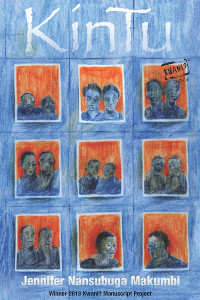 Some are haunted by ghosts of the past, thinking themselves not of sound mind, particularly when aspects of their childhood have been hidden from them, some have prophetic dreams, some have had a foreign university education and try to sever their connections to the old ways, though continue to be haunted by omens and symbols, making it difficult to ignore what they feel within themselves, that their mind wishes to reject. Some turn to God and the Awakened, looking for salvation in newly acquired religions.
Some are haunted by ghosts of the past, thinking themselves not of sound mind, particularly when aspects of their childhood have been hidden from them, some have prophetic dreams, some have had a foreign university education and try to sever their connections to the old ways, though continue to be haunted by omens and symbols, making it difficult to ignore what they feel within themselves, that their mind wishes to reject. Some turn to God and the Awakened, looking for salvation in newly acquired religions.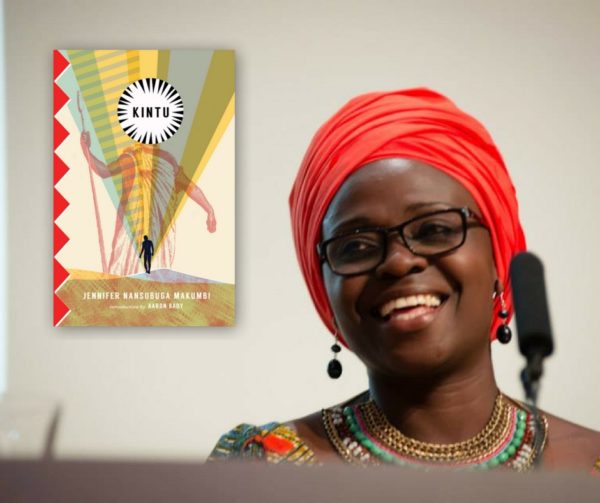
 I began seeing reviews about When I Hit You, Or, A Portrait of the Writer as a Young Wife late in 2017, most were stunned by this novel, obviously by the subject, a woman writing about the experience of domestic violence and abuse, herself a victim of it within marriage; but also the analysis of her response to what was happening. This was a highly educated, intelligent and articulate young woman writing. It nudged preconceived ideas about victims of domestic abuse.
I began seeing reviews about When I Hit You, Or, A Portrait of the Writer as a Young Wife late in 2017, most were stunned by this novel, obviously by the subject, a woman writing about the experience of domestic violence and abuse, herself a victim of it within marriage; but also the analysis of her response to what was happening. This was a highly educated, intelligent and articulate young woman writing. It nudged preconceived ideas about victims of domestic abuse.
 Meena Kandasamy has taken charge of her story, she retells it in exactly the form(s) that she desires, and I am sure she will move on and create more great works of art, in literary form.
Meena Kandasamy has taken charge of her story, she retells it in exactly the form(s) that she desires, and I am sure she will move on and create more great works of art, in literary form. I like to read books that come from within other cultures, so a literature prize that brings attention to authors from outside the predominant literary cultures interests me.
I like to read books that come from within other cultures, so a literature prize that brings attention to authors from outside the predominant literary cultures interests me.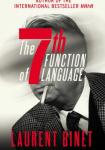
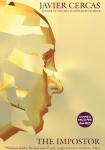
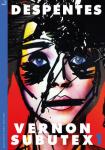



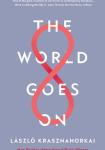
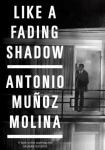
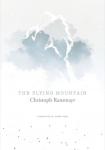
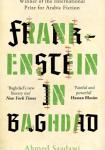
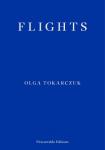


 Elsie is Florence’s (Flo) best friend. The book is all about Flo and begins with her lying on the floor having had a fall, she’s waiting for someone to arrive, she lives in a self-contained apartment within a retirement village. She imagines who might come first, what they might say, the ambulance ride to the hospital.
Elsie is Florence’s (Flo) best friend. The book is all about Flo and begins with her lying on the floor having had a fall, she’s waiting for someone to arrive, she lives in a self-contained apartment within a retirement village. She imagines who might come first, what they might say, the ambulance ride to the hospital.
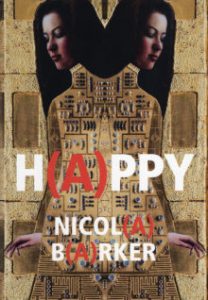


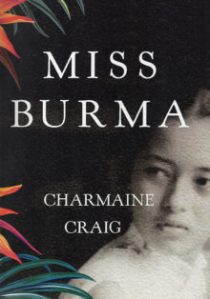





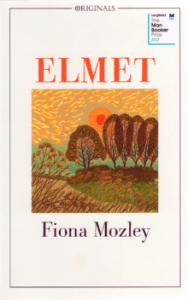



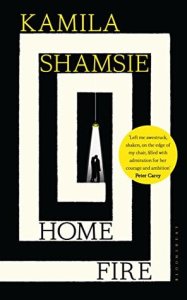


 The inhabitants of Amgash appear to have invaded the imagination of Elizabeth Strout, not satisfied with being mere peripheral characters in her excellent novel
The inhabitants of Amgash appear to have invaded the imagination of Elizabeth Strout, not satisfied with being mere peripheral characters in her excellent novel  Anything is Possible recently won
Anything is Possible recently won  Happiness opens with the tale of a wolf hunter in the US called in to track a wolf that is believed to have been killing sheep. He observes the surroundings, lies in wait, makes the kill, collects his bounty and then returns to lie in wait for the she-wolf he knows will come out after three days. Two species. Surviving.
Happiness opens with the tale of a wolf hunter in the US called in to track a wolf that is believed to have been killing sheep. He observes the surroundings, lies in wait, makes the kill, collects his bounty and then returns to lie in wait for the she-wolf he knows will come out after three days. Two species. Surviving. The fox lives beside the human but inhabits a different time zone, most humans are little aware of their presence as their nocturnal meanderings cease the minute humanity awakens and begins to disturb a territory that belongs more to them in the small hours of the night.
The fox lives beside the human but inhabits a different time zone, most humans are little aware of their presence as their nocturnal meanderings cease the minute humanity awakens and begins to disturb a territory that belongs more to them in the small hours of the night.

 There is something so captivating about the voice of Lucy Barton, it made me wish to slow read this novel, as if it were a box of exquisite chocolates that require enormous self-discipline not to finish in one sitting.
There is something so captivating about the voice of Lucy Barton, it made me wish to slow read this novel, as if it were a box of exquisite chocolates that require enormous self-discipline not to finish in one sitting. The first woman who came to mind and whose book I want to recommend is Wangari Maathai’s Unbowed, One Woman’s Story. Kenyan and one of a group of young African’s selected to be part of the ‘Kennedy Airlift’ , she and others were given the opportunity to gain higher education in the US and to use their education to contribute to progress in their home countries. Maathai was a scientist, an academic and an activist, passionate about sustainable development; she started the The Greenbelt Movement, a tree planting initiative, which not only helped save the land, but empowered local women to take charge of creating nurseries in their villages, thereby taking care of their own and their family’s well-being.
The first woman who came to mind and whose book I want to recommend is Wangari Maathai’s Unbowed, One Woman’s Story. Kenyan and one of a group of young African’s selected to be part of the ‘Kennedy Airlift’ , she and others were given the opportunity to gain higher education in the US and to use their education to contribute to progress in their home countries. Maathai was a scientist, an academic and an activist, passionate about sustainable development; she started the The Greenbelt Movement, a tree planting initiative, which not only helped save the land, but empowered local women to take charge of creating nurseries in their villages, thereby taking care of their own and their family’s well-being. Henrietta Lacks is perhaps one of the most famous women we’d never heard of, a woman who never knew or benefited from her incredible contribution to science and humanity. A young mother in her 30’s, she was diagnosed with an aggressive form of cancer and despite being eligible for and receiving medical care at the John Hopkins hospital in Baltimore, a medical facility funded and founded to ensure equal access no matter their race, status, income or other discriminatory reason, she died soon after.
Henrietta Lacks is perhaps one of the most famous women we’d never heard of, a woman who never knew or benefited from her incredible contribution to science and humanity. A young mother in her 30’s, she was diagnosed with an aggressive form of cancer and despite being eligible for and receiving medical care at the John Hopkins hospital in Baltimore, a medical facility funded and founded to ensure equal access no matter their race, status, income or other discriminatory reason, she died soon after.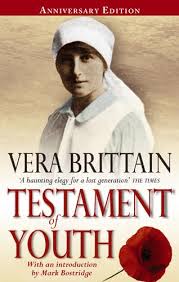 Vera Brittain was a university student at Oxford when World War 1 began to decimate the lives of youth, family and friends around her. It suspended her education and resulted in her volunteering as a VAD (Voluntary Aid Detachment) nurse. Initially based in a military hospital in London, events would propel her to volunteer for a foreign assignment, taking her to Malta and then close to the front line in France for the remaining years of the war.
Vera Brittain was a university student at Oxford when World War 1 began to decimate the lives of youth, family and friends around her. It suspended her education and resulted in her volunteering as a VAD (Voluntary Aid Detachment) nurse. Initially based in a military hospital in London, events would propel her to volunteer for a foreign assignment, taking her to Malta and then close to the front line in France for the remaining years of the war. Maya Angelou is best known for her incredible series of seven autobiographies, beginning with I Know Why the Caged Bird Sings (1969), narrating her life up to the age of 17. She became a writer after a number of varied occupations in her youth.
Maya Angelou is best known for her incredible series of seven autobiographies, beginning with I Know Why the Caged Bird Sings (1969), narrating her life up to the age of 17. She became a writer after a number of varied occupations in her youth. Diana Athill OBE (born 21 Dec 1917) is someone I think of as the ordinary made extraordinary. She was a fiction editor for most of her working life, forced into earning a living due to circumstance, for while her great-grandparents generation had made or married into money, her father’s generation lost it. She clearly remembers her father telling her ‘You will have to earn your living’ and that it was something almost unnatural at the time.
Diana Athill OBE (born 21 Dec 1917) is someone I think of as the ordinary made extraordinary. She was a fiction editor for most of her working life, forced into earning a living due to circumstance, for while her great-grandparents generation had made or married into money, her father’s generation lost it. She clearly remembers her father telling her ‘You will have to earn your living’ and that it was something almost unnatural at the time.